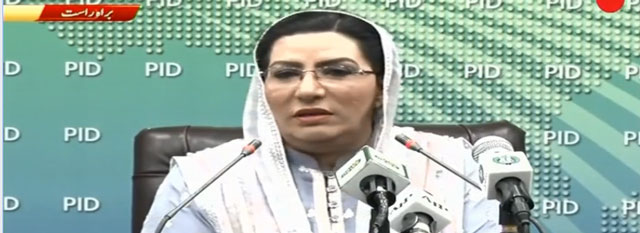
The PTI-led government would play its role in enhancing harmony among the state institutions because a clash among them would be detrimental to national interests. It would also ensure the state institutions operate within their respective constitutional limits.
The decision was taken at a meeting of the PTI Core Committee convened at the residence of Prime Minister Imran Khan at Bani Gala on the edge of Islamabad on Wednesday.
The meeting came a day after a special court convicted former military ruler Pervez Musharraf of treason and sentenced him to death, triggering an angry reaction from the military which said all the servicemen were “pained and anguished” by the ruling.
Muslim leaders gather in Malaysia for summit shunned by Saudi
The committee heaped praise on the armed forces for rendering countless sacrifices for restoring peace in the country. It said adversaries were hatching conspiracies to destabilise Pakistan by sowing seeds of discord and creating chaos, but their plots would be thwarted with unity.
The participants of the meeting reiterated that the PTI and its government stood for the supremacy of law and its uniform application. They vowed to strengthen national institutions as the state’s interests were above everything else.
The issue of the extension of the army chief’s tenure also came up for discussion, sources said. The participants decided that a final decision on whether introducing legislation or going down the review route would be taken after consulting legal aides and the PTI’s parliamentary committee.
The Supreme Court has given the government six months to set the tenure and other service terms of an army chief through a simple act of parliament or else appoint Gen Qamar Javed Bajwa’s successor.
Briefing the media on the committee decisions, Special Assistant to PM on Information Dr Firdous Ashiq Awan said that during the meeting Premier Imran Khan referred to the ruling party’s long struggle for justice. “The PTI’s manifesto lays a lot of emphasis on ensuring supremacy of law in the country and creating an environment through reforms in which everyone is equal before law,” she said.
Firdous said the government’s legal experts -- Ali Zafar and Babar Awan -- briefed the participants on the legal lacunae and loopholes in the special court verdict against Musharraf.
The prime minister said the government would strengthen state institutions and further empower them. He added that the government stood with the law and the Constitution.
It was decided that the government’s legal wizards would pore over the judgment and submit their recommendations to the cabinet and the party’s core committee. The government would announce its position in the light of these recommendations.
The government’s top law officer has already said that the prosecution would support the ailing former president if his lawyers filed an appeal in the Supreme Court against the special court judgment.
The committee, according to Firdous, also discussed the persisting deadlock over the appointment of a new chief election commissioner (CEC) as the Parliamentary Committee has so far failed to evolve consensus on a nominee. The Islamabad High Court has given parliament more time to remove differences and make the appointment.
The prime minister directed the treasury members of the Parliamentary Committee to work with the National Assembly speaker to evolve a consensus on the CEC appointment. However, he made it clear that the appointment must not be made on someone’s wishes. “It is unfair that two parties decide the appointment of CEC,” he said. “The institutions, not individuals, should be important.”
The committee also discussed a request of PML-N Vice President Maryam Nawaz who has petitioned the Lahore High Court (LHC) for the removal of her name from the no-fly list, so that she could visit her ailing father Nawaz Sharif in London.
The LHC has referred her request to the interior ministry. The prime minister, however, said – and the committee members agreed – that no one was above the law. They agreed that Maryam’s request should be decided in accordance with the law.
The participants also condemned India’s new discriminatory citizenship law. The prime minister said the controversial law, which had already whipped up widespread protests in India, had exposed the fascist face of Narendra Modi and his party before the international community.
Punjab Chief Minister Usman Buzdar briefed the meeting on the recent lawyers’ rampage at the Punjab Institute of Cardiology which had resulted in the death of three patients.

















COMMENTS
Comments are moderated and generally will be posted if they are on-topic and not abusive.
For more information, please see our Comments FAQ